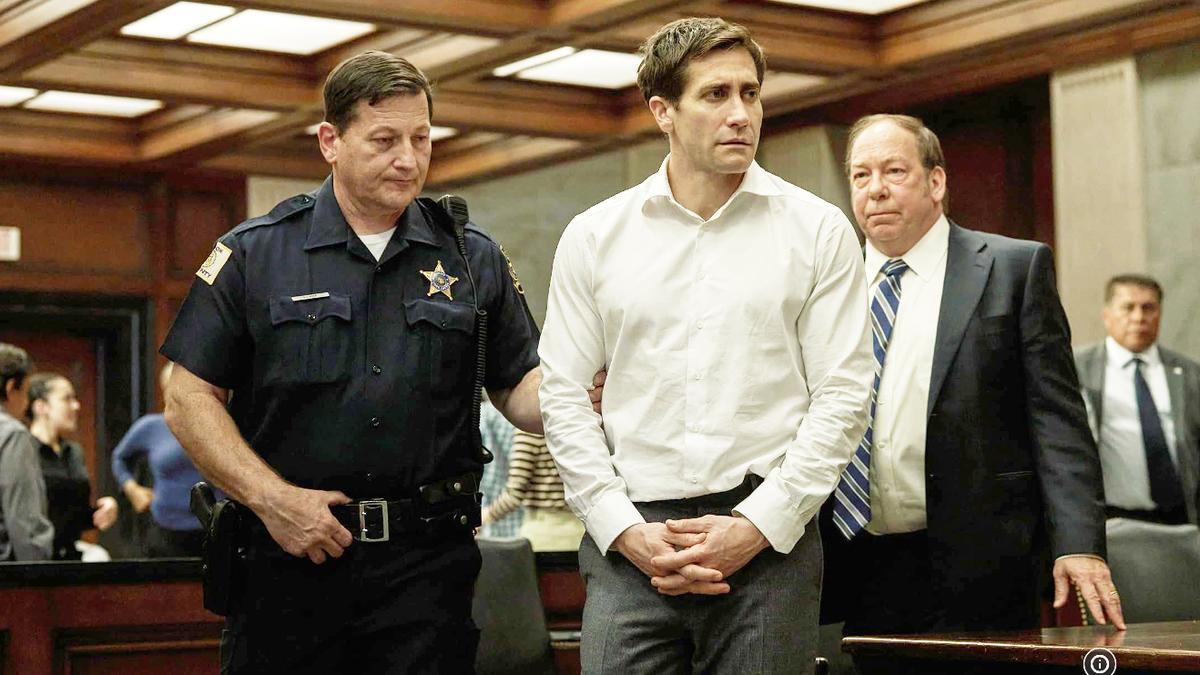
Watching Presumed Innocent, David E. Kelley’s new legal drama for Apple TV+, has stirred up a complex array of feelings among viewers. The show stars Jake Gyllenhaal as Rusty Sabich, a prosecutor accused of the murder of his younger colleague Carolyn Polhemus, portrayed by Renate Reinsve. Sabich’s predicament is compounded by the fact that he was engaged in an extramarital affair with Carolyn.
Based on Scott Turow’s bestselling 1987 novel, which also inspired a 1990 big-screen adaptation starring Harrison Ford, Presumed Innocent carries the distinctive hallmarks that have become synonymous with Kelley’s work: lurid, sensationalist subjects, a focus on psychological elements over materialistic concerns, and characters engaged in emotionally-charged dialogues.
David E. Kelley, who began his career as head writer for L.A. Law, has continued to leave his imprint on the legal drama genre with seminal shows like The Practice, Boston Legal, and Ally McBeal. His recent works, The Lincoln Lawyer, Big Little Lies, and The Undoing, have also garnered significant attention, with the latter two featuring Nicole Kidman. When operating at his peak, Kelley has a remarkable ability to infuse these elements into agreeable genre fare. However, when he misses the mark, his characters often become caricatures of over-confident, morally obstinate individuals embodying American exceptionalism.
In Presumed Innocent, this dichotomy becomes evident. The show excels as a whodunnit or police/court procedural, an area where both Kelley and Turow (credited as an executive producer) shine, given their backgrounds as practicing lawyers before venturing into show business. It is no surprise that the legal procedural elements are written with precision and authenticity.
However, the show falters significantly by allocating excessive screen time to the mundane family drama surrounding Sabich. This includes his overwhelming guilt over his infidelity, which often overshadows the more thrilling aspects of the legal drama. Ruth Negga delivers a commendable performance as Rusty’s wife, Barbara, a role that unfortunately, despite her talent, is poorly written.
. Negga’s performance in the Rebecca Hall-directed Passing was monumental, making her capabilities evident. However, in Presumed Innocent, her character is relegated to tired stereotypes.
Barbara’s role, much like Carolyn’s, serves predominantly to remind Sabich of his moral failings. Carolyn, who appears mostly in hackneyed flashback sequences, serves to reiterate the ‘gold digger’ narrative—an ambitious career woman leading a morally upright protagonist astray. This trope feels outdated and is poorly executed in the series.
Beyond the narrative issues with Presumed Innocent, Kelley’s broader body of work reveals certain ideological limitations. Much like Aaron Sorkin, another prominent showrunner from the 90s and 2000s, Kelley is often seen to embody political ideas that have not aged well. Both creators are products of a form of progressivism tied heavily to political theatrics, often placing token minorities in positions within status-quoist government agencies. Consequently, many of their works, once lauded, now appear archaic.
For example, Sorkin’s The Newsroom and The West Wing now come off as unbearably smug and often dismissive towards younger generations. Similarly, Kelley’s Boston Legal showcased a clear preference for Hillary Clinton, to the extent of caricaturing Barack Obama supporters, underscoring a dated political stance.
Today, both Kelley and Sorkin must decide whether to reinvent their storytelling techniques to remain relevant or accept a gradual obsolescence. This is particularly evident when observing Presumed Innocent, which suggests that Kelley has yet to fully adapt to contemporary expectations and sensibilities.
As Kelley continues his journey in television, the challenge lies in overcoming these recurring shortcomings. While Presumed Innocent succeeds in portraying an engaging legal drama in parts, it struggles to rise above outdated and poorly constructed secondary narratives. For viewers and critics alike, it remains a mixed bag—exemplifying Kelley’s strengths and weaknesses in equal measure. The future of Kelley’s storytelling will depend significantly on his willingness to innovate and address these deep-seated issues.












